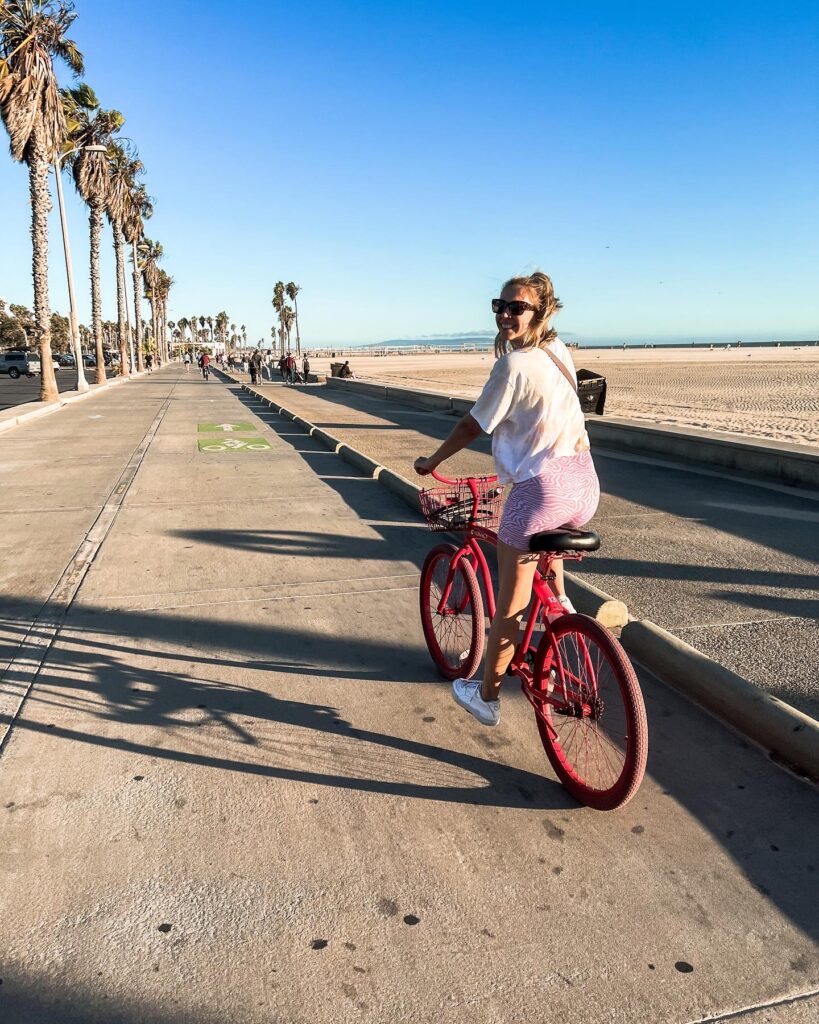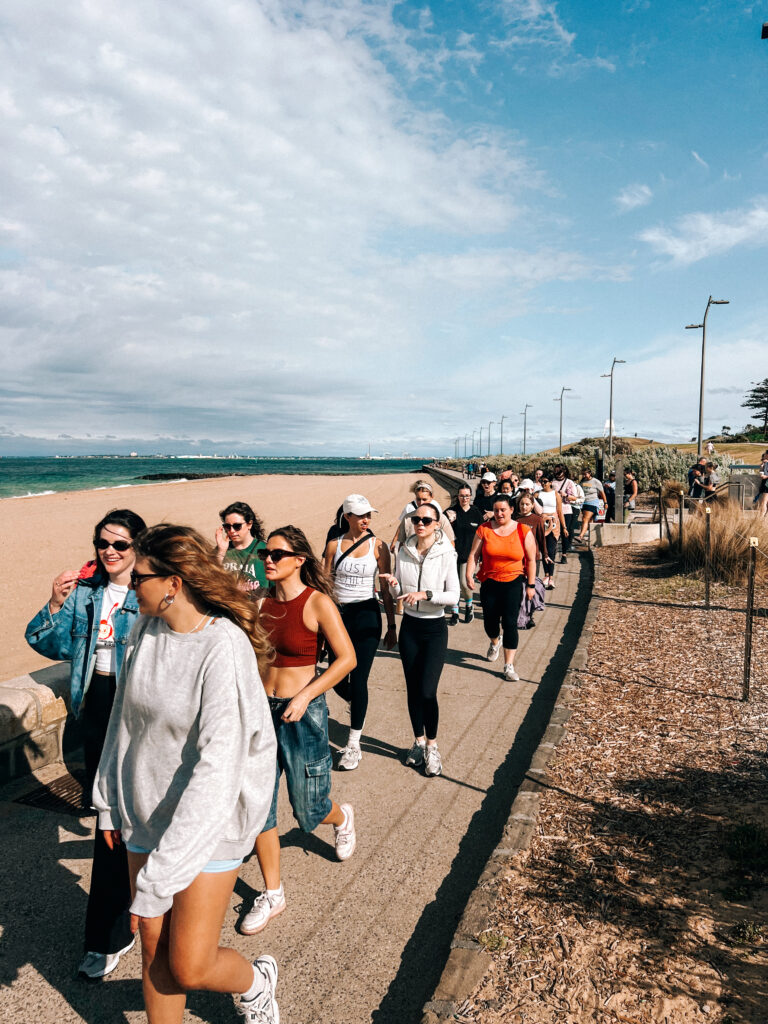As a women’s health physio, Ash Ormond has always been a huge champion of women. Over the years, she’s even built an online community sharing videos on women’s health, especially on taboo topics.
But it was when she wanted to transition this social media community into real life connections that she realised how difficult it is to find spaces for women to gather in a welcoming, supportive environment.
“I realised women don’t have a space to really do that unless you’re particularly sporty, but even then, a lot of gyms are quite masculine. And even pilates studios—which tend to be geared towards women—can feel quite exclusive, particularly to people who aren’t a certain body size or shape,” she told Women’s Agenda recently.
The more Ormond thought about the options available to her, the more she discovered that there always seemed to be an entry price for social connection for women.
“Run clubs have also taken off, but I for one, can’t run and talk at the same time. There always seemed to be an entry price, right? Often, it’s a certain level of fitness,” she says.
Ash is now the founder of Hype Girl Social Club, a small business she started to help women in their 20s and 30s in Melbourne make meaningful new connections.
It began with a simple idea—to host a regular walking club for young women to meet and connect. As Ormond explains, there wasn’t much initial thought behind it beyond that.
“I put a TikTok video up at 5pm the night before our first walk, and I woke up to 48,000 views, and about 400 saves,” Ormond says.
“Thankfully 400 people didn’t show up because I would have no idea what to do with them, but 17 people did and it’s just been growing exponentially from there.”

Post pandemic, Ormond says she’s witnessed a rise of social anxiety among the young women around her. There’s also a feeling among women in their 20s and 30s that most people already have their friendships “sorted”, and coupled with the cost-of-living, it’s left socialising to feel out of reach.
According to the latest Medibank Loneliness Population Index, Australians who are classified as “young and free” and are yet to settle down with partners and children of their own, are the most at risk of loneliness.
Having few friends, or growing apart from friends, was the top trigger for loneliness among Australians, according to the research. Meanwhile, cost-of-living was the second most cited trigger.
“We’ve really glorified staying in and I think there’s a really big push on social media for that,’ Ormond says. “I can relate. Post pandemic, I really fell in love with just having a little night at home on my couch and watching Love Island with my cat.”
“Going out requires a lot of effort. It’s tiring. It’s exhausting, and also acknowledging the cost-of-living at the moment is expensive if you even step outside of your house.
“But we’ve swung the pendulum so far that we’re kind of like, ‘Oh, I won’t go out. I’ll just stay home’,” she says.
Ormond says that Hype Girl Social Club is founded on the idea that it’s normal to feel anxious about showing up to a new space alone. But she’s intent on reducing the barriers to get women there.
“We can create a space where that’s inclusive and welcoming and supportive, but that doesn’t mean the voice in your head will go away,” she says.
“When we talk about getting outside of your comfort zone, it’s very much like you have to just do the thing. It’s a skill in and of itself.”
It’s about more than friendship
The latest Medibank Loneliness Population Index shows that just 33 per cent of Australians say they know which strategies or tactics can help manage loneliness.
Ormond says loneliness is a significant issue for the women who turn up to her events. She hopes Hype Girl Social Club can help them to build more than just friendships—she wants to build a community that can be relied upon when someone is feeling lonely.
“What I am hearing from the community is that they have friends, but they are at different life stages, or they have friends but they don’t feel particularly connected to them,” she says.

“And what I have come to realise over the last 12 months or so is that we have a language for friendship. For example, we learn from a really young age that we need friends. We learn how to make them, and people ask, ‘Who are your friends at school?’
“But no one asks, ‘who’s your community?’ We don’t talk about it. We don’t have a language for it, but it serves just as an important part of our lives as friendship does.
“Community is about being connected to that bigger purpose, or feeling like there’s a wider group of people who have shared thinking or shared values and will have your back.”
To learn more about Medibank’s commitment to reducing loneliness head to We Are Lonely | Medibank.
About the research
Research commissioned by FiftyFive5 on behalf of Medibank. Research was conducted in July 2024, among a sample of (n=4,131) Australians.
If you need to speak to someone now, you can reach Beyond Blue on 1300 224 636 or call Lifeline on 13 11 14.

